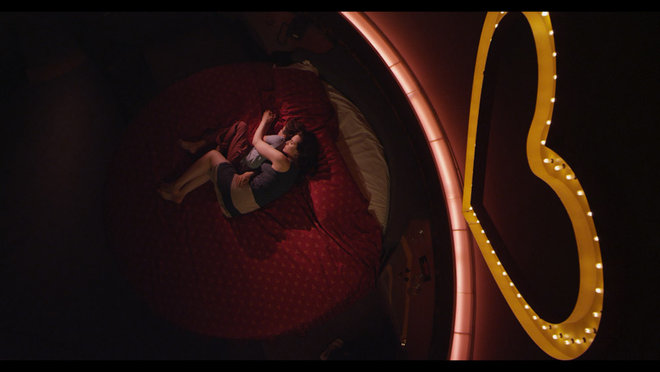Main competition may be the most coveted event at Cannes, but this doesn’t mean the festival doesn’t offer a myriad of other pleasures, some even more adventurous and exciting. Quinzaine de Realisateurs is one such section, focusing on directorial talents from all over the world and offering many wonderful surprises (it was here in 2012 that I saw Michel Gondry’s “The We and the I“). This year, the discovery I owe to Quinzaine is “Refugiado”, a new Argentinian drama by Diego Lerman. Watching it made me think of some of the unfortunate Competition choices and wonder about the selection criteria (especially as I still try to recover from the offensive disaster that Michel Hazanavicius’ “The Search” proved to be).
“Refugiado” tells the story of Laura (Julieta Diaz), the mother of a young boy named Matias (Sebastian Molinaro), who’s on his way from school one day when he finds her laying beaten up on the kitchen floor. Clearly a victim of regular domestic violence (perpetrated by a husband who appears in the film mostly as an invisible threat), Laura is taken to a shelter for mistreated women, with Matias following her every step. When the woman finally decides to break all ties with her abusive partner, she takes Matias on her journey with him, and the movie becomes a suspenseful story of them fleeing the father, who proves both menacing and duplicitous in his repeated phone calls and relentless pursuit.
Lerman does a terrific job of showing how the young boy is suddenly uprooted and forced to live in an unfamiliar, constantly shifting environment. As the mother is still recovering from the injuries she suffered, Matias is pretty much on his own, checking out nooks and crannies of the shelter building, as well as making fleeting acquaintances with other kids and some of the employees. The film more than lives up to its title, showing the mother and the son in a state of constant refuge and never-ceasing transition, with Lerman making us more and more aware of how precarious life begins to be for the young boy. Even though, by the end, Matias is mature enough to boldly detach himself from his father, there is a sense that his life from now on may be a series of escapes, which may one day even perpetuate the vicious circle of macho-based domestic violence he suffered.
Full disclosure: my seeking out the film was not entirely coincidental since I was very curious to see the latest work of its remarkable Polish cameraman, Wojciech Staron. Knowing his earlier, mostly documentary work (such as “Argentinian Lesson”), I was surprised by how easily he preserved his style in widescreen, beautiful compositions in this film. Staron’s camera remains extremely attentive to people’s faces and bodies, which is only fitting in a story centered so much on the intimate bond between mother and child. The cinematography remains very versatile, showcasing a number of different environments: urban and rural, public and private, beautiful and tacky (the signature image which also serves as the film’s poster is an overhead shot of Laura and Matias on a cheap hotel bed, with a neon heart hovering over them in a way both ominous and protective).
As the newly appointed artistic director of Gdynia Film Festival—the oldest and most venerable festival of Polish films held in Poland itself—part of my role in Cannes this year is to see how Polish movies, or movies made with the participation of Polish artists, are being received. Krzysztof Kieslowski’s “Blind Chance” was just presented in the Cannes Classics section with some footage restored for the first time since the film opened in 1986, and Agnieszka Woszczynska’s short film “Fragments” will screen tomorrow in Quinzaine, as well. I am excited to see my compatriots contributions to world cinema and hope they will be more numerous in the years to come.












